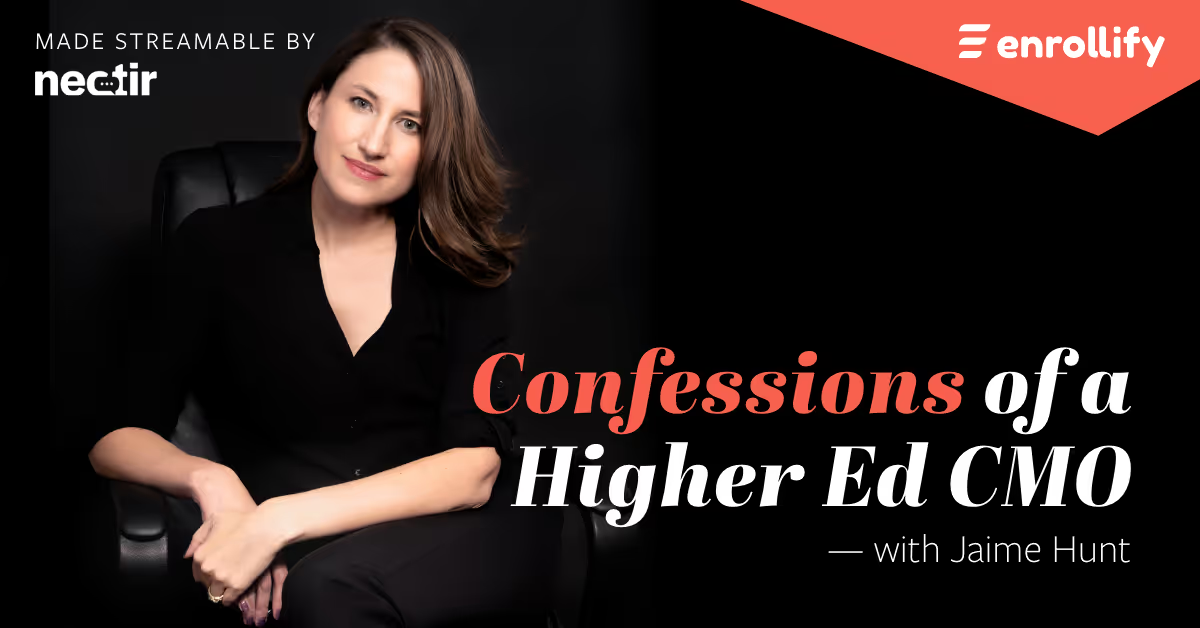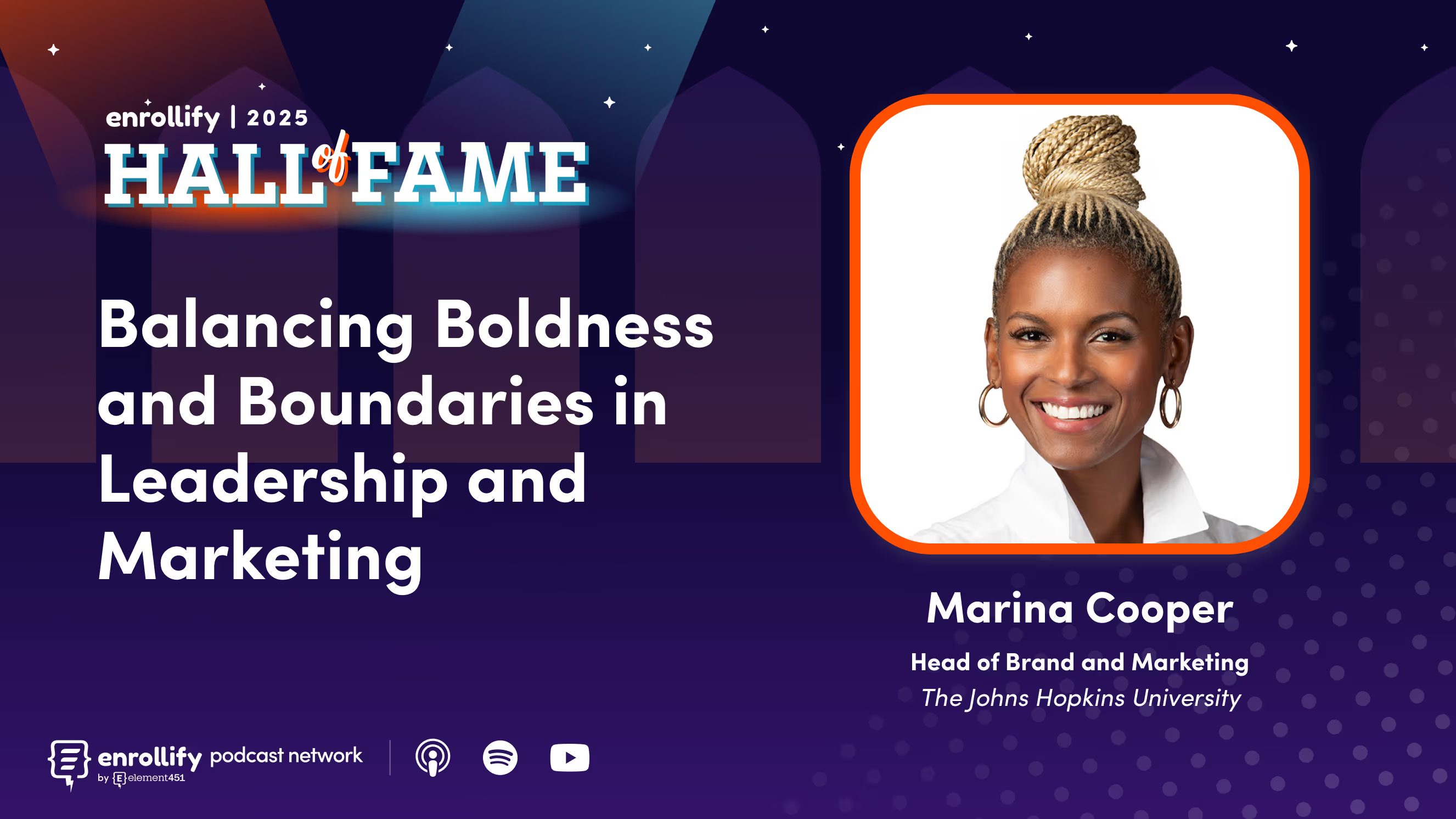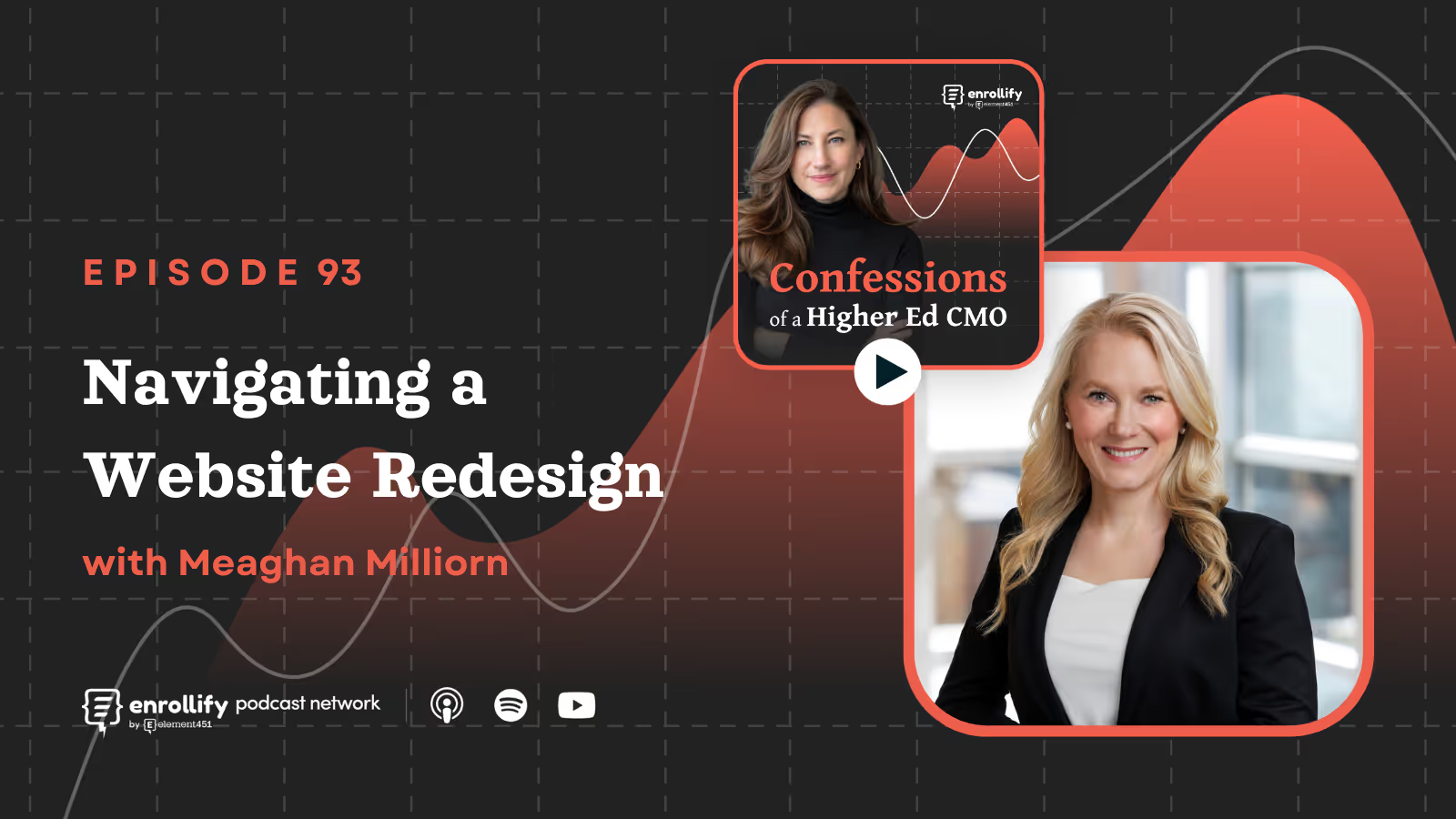About the Episode
According to the U.S. Census Bureau, nearly 1 out of 5 Americans is Hispanic or Latinx – a number that has quadrupled in the last four decades and is expected to continue to grow. As the demographics of the country shift, it is becoming increasingly important for higher ed marketers to understand how to reach this audience. In this episode, Jaime talks with multicultural marketing expert and higher ed marketer Christian Ponce about:
- How to approach undertaking a multicultural marketing campaign
- How to ensure that there is buy-in across campus for your efforts
- How to build a cross-functional team to help guide and influence your approach
- How to speak to Hispanic/Latinx students and their families
- How to help ensure students have a positive experience when they get to campus
Episode Summary
How Can a Multicultural Marketing Team Support Inclusive Recruitment?
Christian Ponce describes the creation of Miami University's Multicultural Marketing Consulting Group, a cross-functional team representing departments across campus, including enrollment management, diversity and inclusion, and regional campuses. This diverse group allows the institution to craft campaigns that truly resonate with multicultural audiences by identifying cultural nuances, family dynamics, and potential barriers to higher education access.
Through this team, Miami University launched its first multicultural campaign, focusing on the message "The Power to Change Your World," which emphasizes empowerment and family support. With digital ads, Spanish-language radio spots, and community outreach, the campaign reaches Latinx families, showing that Miami University is a supportive place for students from diverse backgrounds.
Why is Cultural Competency Essential for Multicultural Marketing?
Cultural competency is a cornerstone of Miami University's multicultural marketing approach. Recognizing this, Ponce spearheaded a Multicultural Series to bring in speakers who cover a wide range of topics, from women’s leadership and disability issues to Latinx cultural identity. These discussions enhance cultural awareness within Miami's marketing team, ensuring that outreach to diverse student populations is respectful and relevant.
For higher ed marketers, Ponce stresses the importance of building cultural intelligence to communicate effectively with different communities. Understanding cultural values, like the strong family ties in Latinx communities, can help marketers create campaigns that resonate on a personal level. This commitment to cultural understanding supports a more inclusive environment, attracting students who feel acknowledged and valued.
What Strategies Can Universities Use to Reach Latinx Students and Families?
The U.S. Hispanic population is growing rapidly, already making up nearly one in five Americans, and projected to reach one-third of the population by 2050. Ponce emphasizes the importance of recognizing this market, both for ethical reasons and for the economic impact it represents. Hispanic Americans have substantial purchasing power, and engaging this community can have long-term benefits for higher education institutions.
To reach these families, universities must demonstrate the value of higher education in a culturally relevant way. For example, Ponce discusses how many Latinx families prioritize proximity to family when choosing a college. By addressing these values in marketing materials, universities can make higher education appealing while respecting family-oriented perspectives.
Additionally, marketers can highlight internship and career opportunities in nearby cities to attract students who may be open to studying farther from home if it enhances their career prospects. For example, Miami University leverages its proximity to Cincinnati as a draw for Latinx students interested in future job opportunities.
What Should Institutions Keep in Mind for the Future of Multicultural Marketing?
Ponce advises institutions to treat multicultural marketing as a core component of their strategy rather than an isolated initiative. With demographic shifts reshaping the American population, catering to Latinx, African American, and other underrepresented communities is essential to sustaining enrollment and remaining relevant. He also recommends viewing multicultural marketing as a holistic endeavor, involving marketing, admissions, and student success teams to create an integrated experience that fosters belonging and retention.
By building an inclusive, supportive campus and showcasing it in marketing materials, institutions can improve the experiences of diverse students, leading to stronger retention and word-of-mouth advocacy. Ponce concludes by encouraging higher ed marketers to act as advocates, educators, and empathetic communicators in all multicultural initiatives, ensuring they meet the needs of a changing student body.
Confessions of a Higher Ed CMO is sponsored by our friends at Nectir - the instant chat tool that engages campus communities and reduces burnout. This community and engagement platform is purpose-built for higher education and connects campus classrooms through conversation. In just 12 months, tens of thousands of students, instructors, and administrators at partner campuses have made Nectir an integral part of their daily learning experience. Learn more about how you can get Nectir on your campus here.
Confessions of a Higher Ed CMO is a part of the Enrollify Podcast Network. If you like this podcast, chances are you’ll like other Enrollify shows too!
Our podcast network is growing by the month and we’ve got a plethora of marketing, admissions, and higher ed technology shows that are jam packed with stories, ideas, and frameworks all designed to empower you to be a better higher ed professional. Our shows feature a selection of the industry’s best as your hosts. Learn from Mickey Baines, Zach Busekrus, Jeremy Tiers, Corynn Myers, Jaime Gleason and many more.
Learn more about The Enrollify Podcast Network at podcasts.enrollify.org. Our shows help higher ed marketers and admissions professionals find their next big idea — come and find yours!















